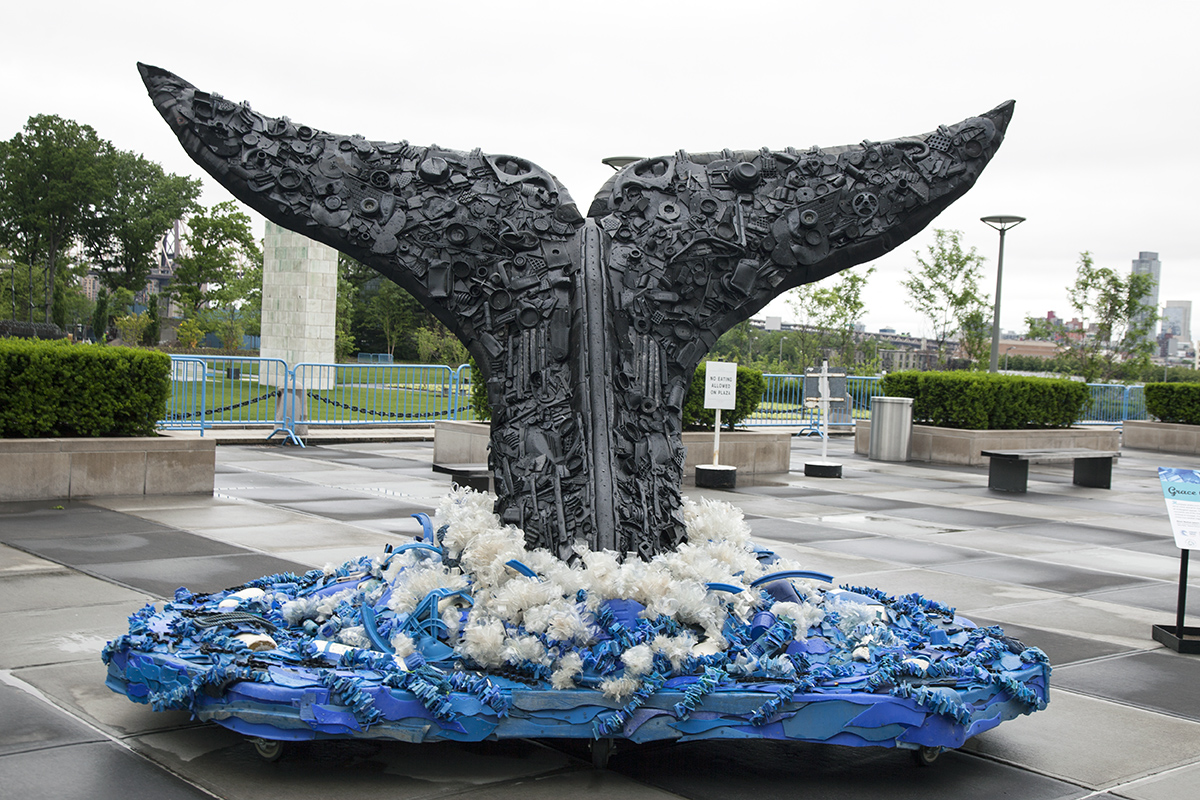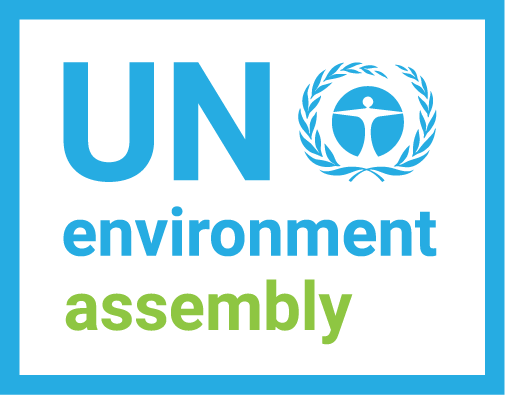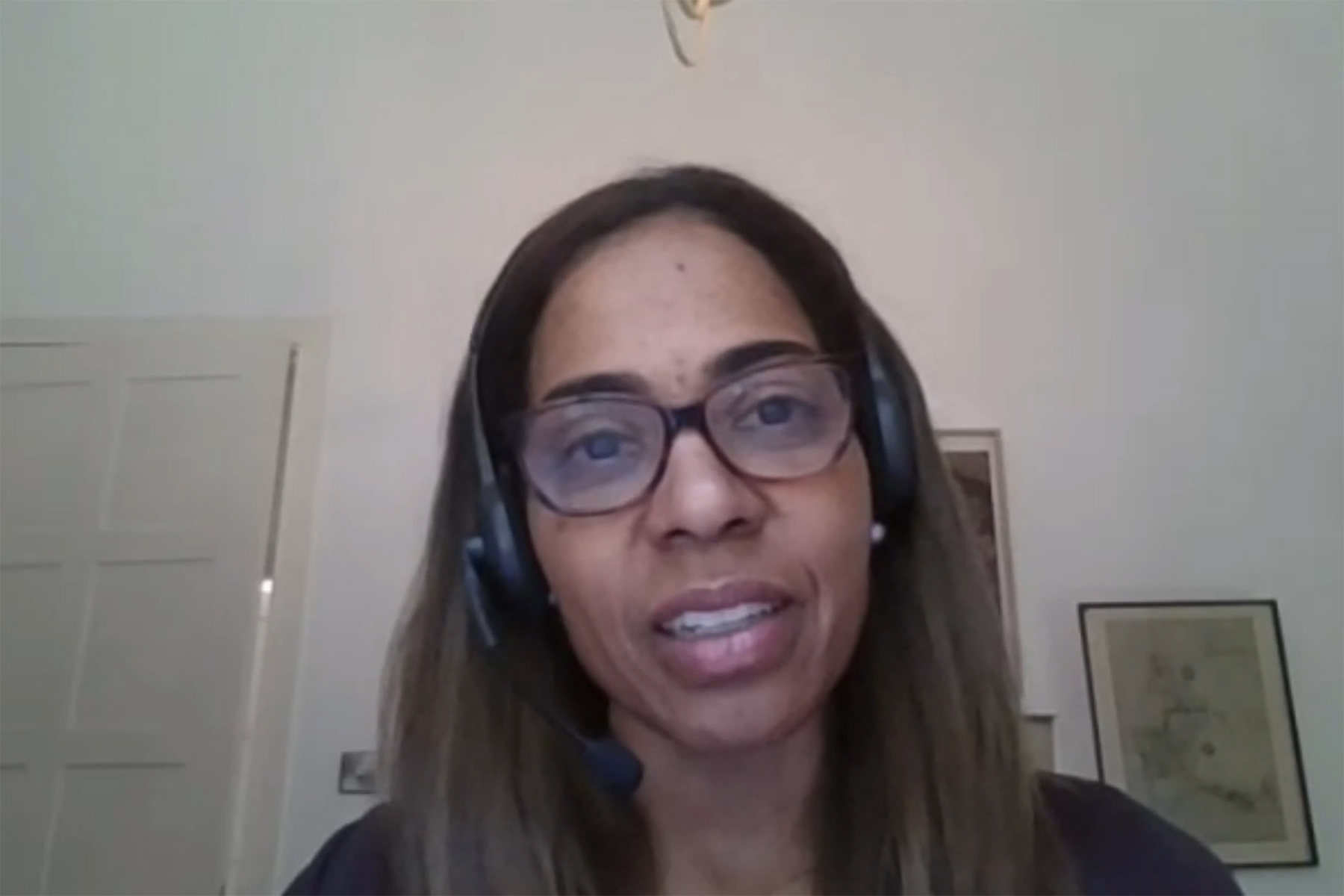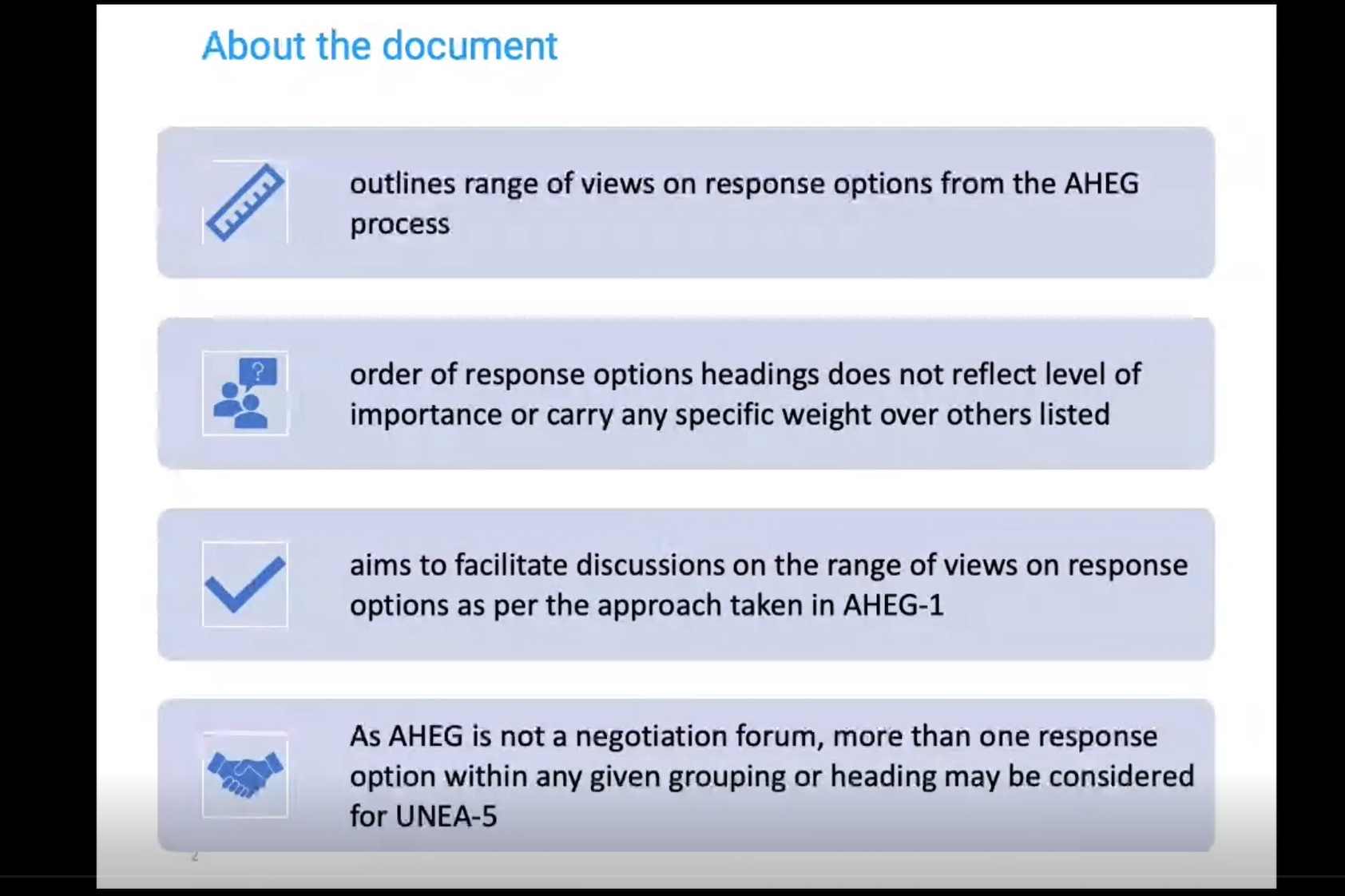4th Meeting of the Ad-hoc Open-ended Expert Group on Marine Litter and Microplastics (AHEG-4)
9-13 November 2020 | Online
Highlights for Wednesday, 11 November 2020

 During their mid-week deliberations, delegates attending the 4th Meeting of the Ad-hoc Open-ended Expert Group on Marine Litter and Microplastics (AHEG-4) spent most of the session discussing response options to the growing marine plastic pollution crisis. Many observed that this crisis is being further exacerbated by excess plastic pollution related to the personal protective equipment (PPE) necessary for the fight against COVID-19.
During their mid-week deliberations, delegates attending the 4th Meeting of the Ad-hoc Open-ended Expert Group on Marine Litter and Microplastics (AHEG-4) spent most of the session discussing response options to the growing marine plastic pollution crisis. Many observed that this crisis is being further exacerbated by excess plastic pollution related to the personal protective equipment (PPE) necessary for the fight against COVID-19.
Delegates heard five presentations on response options from the Nordic Council, Japan, the Pew Charitable Trusts, the World Wide Fund for Nature (WWF), and the Center for International Environmental Law (CIEL). These options, along with those already discussed at previous meetings of the expert group, include, but are not limited to:
- calls for a new global agreement to address plastic pollution;
- calls to strengthen existing global arrangements;
- suggestions to strengthen voluntary and/or other commitments and instruments; and
- preferences for combining and enhancing global, regional and national level actions.
Overcoming technical hiccups, the group had a robust discussion on the various response options to address marine litter and microplastics. Several delegations came out in support of a new global agreement, although there was no convergence on whether this agreement would be legally binding, and on whether it would only address marine litter or go further to address plastic pollution more generally. Many also supported the expansion of existing voluntary agreements, with several pointing to the Osaka Blue Ocean Vision and the G20 Implementation Framework for Actions on Marine Plastic Litter. Others discussed global measures that are already acting on plastic pollution, including the Basel Convention on the Control of Transboundary Movements of Hazardous Wastes and Their Disposal, the Strategic Approach to International Chemicals Management (SAICM), and the International Maritime Organization (IMO). Discussions also addressed the importance of private sector participation, with some delegations noting that the business and philanthropic sectors have already made clear their interest in addressing marine plastic pollution.
Significantly at this session, there were calls for the next meeting of the UN Environment Assembly (UNEA) to mandate an intergovernmental negotiating committee to begin treaty negotiations. Many delegations went a step further and outlined their precise expectations of a new global treaty, with a number stressing that any new treaty should include a transparency mechanism in addition to a financial mechanism and monitoring and reporting systems.
Discussions will continue on Thursday, which will also see delegates engage on the AHEG Chair’s Summary. This Summary will inform discussions at the next substantive session of UNEA and may have broad implications for the world of marine litter and microplastics.
To further explore the presentations on response options made during today’s session, please click here.
Images from the Meeting
Videos from the Session
AHEG-4 Resources
- AHEG-4 Website
- AHEG-4 Working Documents
- Stocktake of Existing Activities and Actions
- Analysis of the Effectiveness of Existing and Potential Response Options
- Potential Options for Continued Work
- AHEG-3 Outcome Document
- AHEG-2 Report
- AHEG-1 Report
IISD/ENB Meeting Coverage
- 12th Meeting of the Open-ended Working Group of the Basel Convention on the Control of Transboundary Movements of Hazardous Wastes and Their Disposal (OEWG12), 1 and 3 September 2020, and March 2021
- 2019 Meetings of the Conferences of the Parties to the Basel, Rotterdam and Stockholm Conventions, 29 April - 10 May 2019, Geneva, Switzerland
- 4th Meeting of the Open-Ended Committee of Permanent Representatives to UN Environment Programme (UNEP) and 4th Session of the UN Environment Assembly, 4-8 March and 11-15 March 2019, Nairobi, Kenya
- AHEG-1, 29-31 May 2018, Nairobi, Kenya
IISD Resources
- Subscription Page for ENB Update, SDG Update, and Peer-to-Peer Community Mailing Lists (including Ocean News, SDG News, Climate News, Biodiversity News, Ocean News, Trade and Sustainable Development News, and Regional Updates)
- SDG Update Newsletter - A compilation of news, commentary and upcoming events published on the SDG Knowledge Hub
- SDG Knowledge Hub - An Online Resource Center for News and Commentary Regarding the Implementation of the United Nations’ 2030 Agenda for Sustainable Development, including all 17 Sustainable Development Goals (SDGs)









